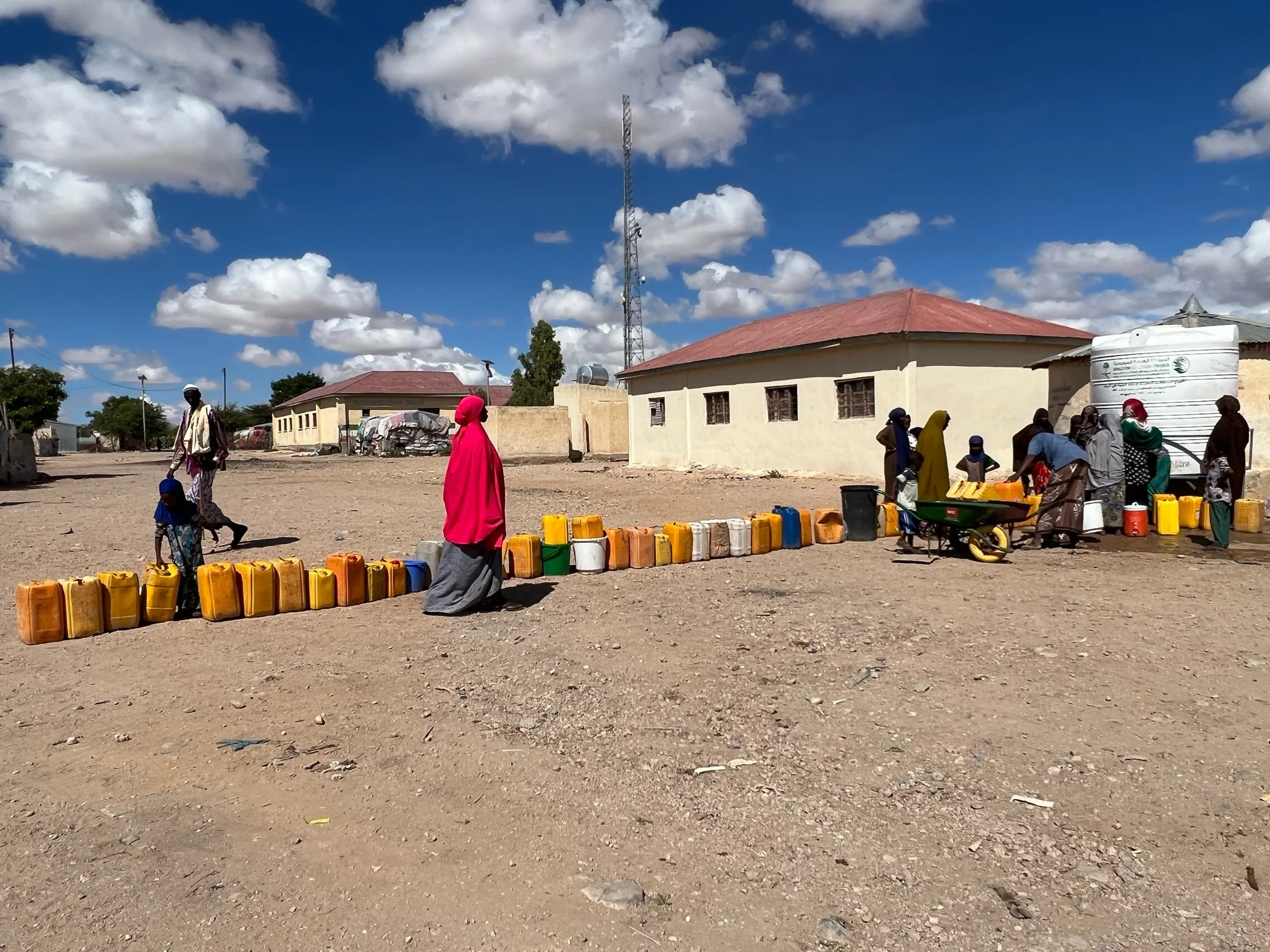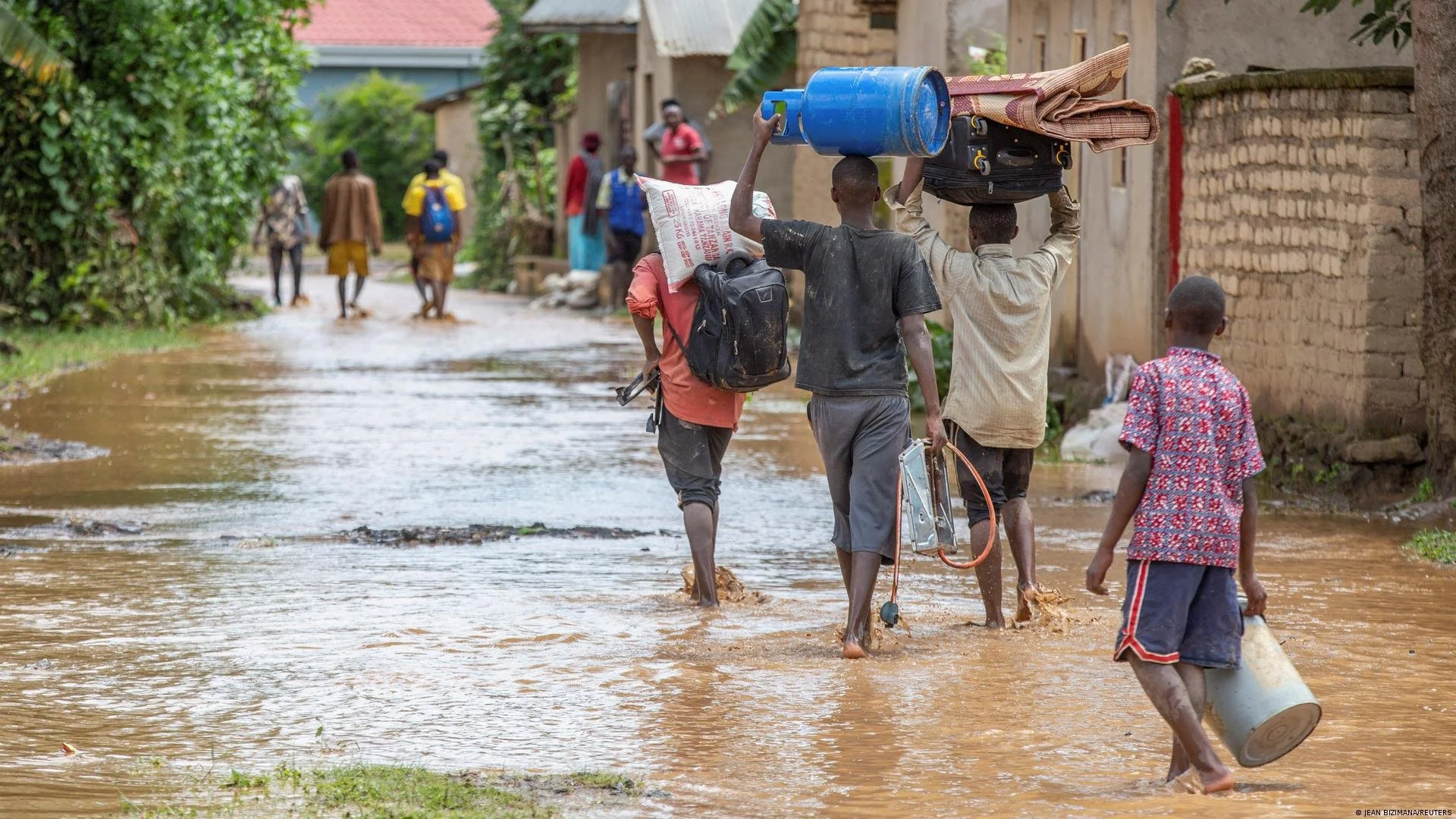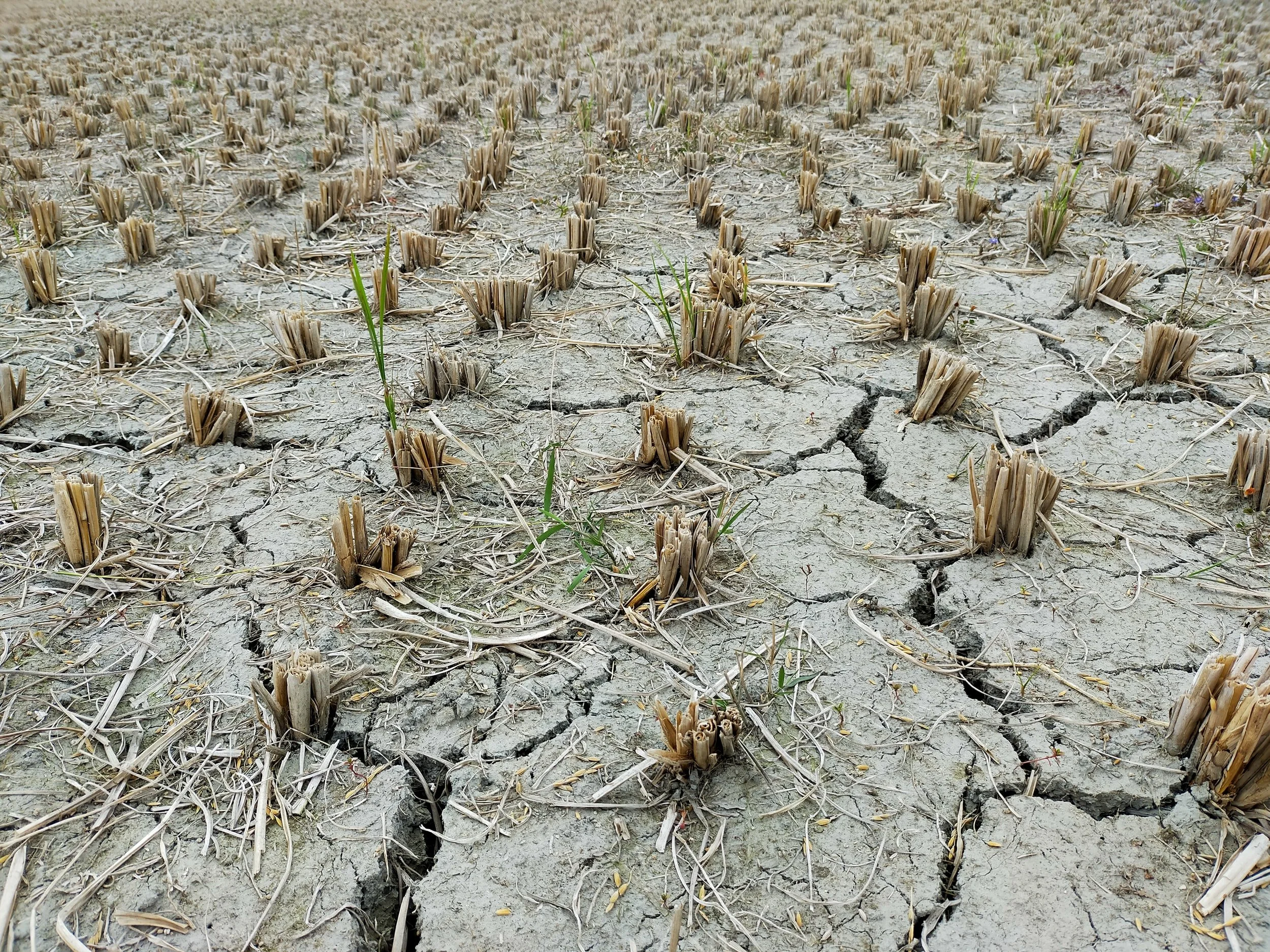WFP Executive Director David Beasley has emphasized that the food crisis “is not because of war or conflict, this is because of climate change.” Madagascar’s global share of emissions is only 0.01%, yet the people there are currently experiencing some of the worst effects.
Inaction on Climate Change Poses Particular Risk to Indigenous Groups in Canada
The Canadian government’s failure to take meaningful action on climate change is putting Indigenous groups at risk of food shortages and poor nutrition, especially those in remote locations. A report by Human Rights Watch finds that habitat loss and extreme weather are major drivers of depleted traditional food sources, and nutritious food flown into communities remains too expensive.
Despite the Trudeau government’s commitments to be a leader on climate and advance the recognition of Indigenous People’s rights, Northern Canada is warming at a rate well above the global average. Provincial and territorial governments were also criticized in the report, which recommended stronger emissions reduction strategies as well as greater technical and financial assistance to communities facing negative impacts of climate change.
One of the key implications of HRW’s report, which studied three different remote First Nations communities in Ontario, Yukon, and British Columbia, is that climate change is compounding already poor outcomes among Indigenous Peoples. For example, increasingly scarce traditional food sources are being supplemented by lower quality, less nutritious food brought in from elsewhere, which only worsens health outcomes stemming from centuries of marginalization and oppression. These intertwined issues are particularly concerning in the context of a global pandemic, in which poor health outcomes undermine coping mechanisms traditionally used to manage extreme events.
"The horrible irony is that we have contributed very little to climate change but are facing the biggest impacts" - Vern Cheechoo, director of lands and resources at Mushkegowuk Council, which represents seven Cree First Nations in northern Ontario
In addition, this report highlights yet another example of how governments, even those that outwardly support the issues at hand, often fail to adequately include their most vulnerable constituents in discussions and policymaking. This means that even communities who take matters into their own hands, such as implementing food sharing networks and regional monitoring systems, are left with inadequate support.
Worryingly, the findings of this latest report mainly echo previous warnings. Over a year ago, Canada’s environment watchdog found the government’s lack of progress on emissions reduction “disturbing” just days after Environment Canada’s scientists issued a warning regarding Canada’s rapid rate of warming compared to the rest of the planet. (Reuters, CBC)
WFP Links Record Hunger Levels to Conflict, Climate Change, COVID-19
At a UN Security Council meeting on conflict-induced food insecurity and the risk of famine in the Democratic Republic of the Congo (DRC), northeast Nigeria, Yemen and South Sudan, WFP Executive Director David Beasley said the the COVID-19 pandemic had compounded widespread food insecurity caused by years of conflict, which now combined with conflict and climate change, meant that “the 270 million people marching toward the brink of starvation need our help more than ever,” adding that 2021 was a “make or break year.”
He urged billionaires and businesses to step up to help save 30 million people at risk of starvation who need $.4.9 billion in aid for one year.
“Worldwide, there are over 2,000 billionaires with a net worth of $8 trillion. In my home country, the USA, there are 12 individuals alone worth $1 trillion.”
“In fact, reports state that three of them made billions upon billions during COVID. I am not opposed to people making money, but humanity is facing the greatest crisis any of us have seen in our lifetimes.”
“It’s time for those who have the most to step up, to help those who have the least in this extraordinary time in world history. To show you truly love your neighbor,” Beasley said. “The world needs you right now and it’s time to do the right thing.”
WFP fears more people may die from hunger, resulting from economic impacts of the pandemic via lockdowns and lost jobs than the virus itself, which has now infected more than 30 million people and killed nearly 1 million people.
WFP warns 20 million are severely food insecure in Yemen and a further 3 million may face starvation due to COVID-19. South Sudan, where a path to peace was hoped, is now facing renewed violence and floods in Jonglei State, and millions are at risk in Nigeria, Burkina Faso and more.
The UN Security Council was briefed on September 17, via videoconference, by the UN Under-Secretary for Humanitarian Affairs Mark Lowcock and the Director-General of FAO Qu Dongyu, in addition to Beasley, following a “Note by the Secretariat” by Lowcock, required by Security Council resolution 2417, warning of food insecurity, including the risk of famine, as a result of conflict, in these four countries.
The note highlighted that food security has been exacerbated by natural disasters, economic shocks and public health crises, all compounded by the COVID-19 pandemic. It also highlighted the severe flooding over the last two years in South Sudan that destroyed 11,000 tons of cereals and affected 14 million livestock.
In a briefing on Yemen the previous day, Lowcock signaled frustration over severe funding shortfalls in all four countries. (VOA, CNBC, What’s In Blue)
UN Launches Pioneering Climate Security Project in the Pacific
The UN, in partnership with Kiribati, Tuvalu and the Marshall Islands, launched a USD $3.2 million UN Climate Security Project yesterday as part of the UN Secretary-General’s Peacebuilding Fund (PBF), and is the first multi-country project of its kind in the region.
The PBF is the UN financial instrument of first resort to sustain peace in countries and regions at risk of conflict or affected by conflict, including that caused by climate change.
The project will provide 24-months of support to assess and begin to address critical climate security challenges faced by these three countries, including displacement and forced migration, resulting from livelihood loss, food security, coastal erosion, increased social tensions linked to shrinking land and tenure, and industries such as fisheries, as well as the ever increasing costs of responding to worsening natural disasters.
In a quest to avert social conflict, the project will focus on tailored climate security assessments, including youth and gender-sensitive discussions and partnerships with key stakeholders. The project will be implemented by UNDP and IOM.
Khaled Khiari, the UN Assistant Secretary-General for Middle East, Asia and the Pacific from the Departments of Political and Peacebuilding Affairs and Peace Operations noted that “climate change in the Pacific has the potential to cause a myriad of cascading fragility and instability risks.”
The three country leaders echoed the harrowing climate change challenges each of their countries are facing, all of which are only two meters above sea-level at their highest points.
“This is about our survival, safety and security”
President of the Marshall Islands, H.E. David Kabua
Khiari noted the groundbreaking nature of the project, with which we certainly agree, and demonstrates the significant movement of the conversation of climate change to climate security within the UN security architecture, most notably within the UN Security Council, whose most recent debate on climate security was in July this year, and included a briefing by Pacific representative of the Climate Security Expert Network, covered in this Spotlight. (UNDP, FBC News)
Water, Energy, Food Security Key to MENA Stability
Water, Energy and Food Security Key to MENA Stability
This author believes if continued to go unchecked, insecurity in the “water-food-energy” nexus will lead to political unrest, displacement and instability in the Middle East region. In the context of climate change and population demographics, a finite amount of water in the Middle East risks sustainable development, poverty and human survival. Water resources are critically low throughout the region with major aquifers overused. Add to that, drought in countries like Yemen and Syria, have contributed to steep declines in food production and conflict, and with it, displacement, which in turn has impacted production and cultivation. Years of conflict in Yemen has forced the import of basic food production, while Syria’s drought and displacement have impacted food security, and possibly contributed to the conflict.
Rural water supply is limited to springs, depleted these past 20 years due to agricultural irrigation in Oman, Jordan and Saudi Arabia, formerly the sixth largest wheat exporter. That water insecurity has driven rural to urban migration across many MENA countries, further straining crumbling public infrastructure.
Moving into renewable energies and reducing dependency on water-intensive sectors will be vital but the World Bank estimates it will cost $1 trillion by 2050. Water security can and is being pursued through recycling and desalination, with the MENA region accounting for half of the word’s desalination capacity. Recycling, though, is crucial, as the region fails to recycle 80% of wastewater. (The Arab Weekly)
Recent SPOTLIGHTS - Stories You May Have Missed
Pakistan Faces Second Locust Battle, Challenging Food Security Amid Virus Fight and Refugee Concerns
Pakistan Readies for Second Battle Against Crop-Devouring Locusts
An impending second infestation in as many years that could destroy sugarcane, cotton, rice, fruit and vegetable crops is a deeper concern for farmers than the current novel coronavirus pandemic. The Sindh province chief minister warns of a “massive locust attack” expected from Iran in mid-May, worse than the previous year. The UN Food and Agriculture Organization (FAO) is warning of dire food insecurity if the crops are eaten by locusts, prices of staples like flour and vegetables skyrocketing and losses as high as $2.8 billion for summer crops and $2.2 billion for winter crops. Last year, Pakistan suffered its worst attack of locusts since 1993 in all four of its provinces, for which it was unprepared, and a repeat this year in the midst of COVID-19 could be catastrophic for Pakistan’s poorest communities. Unprecedented rains in Sindh’s desert led to vegetation cover that enabled locust breeding and crop attacks. FAO and climate scientists say warming oceans have led to increased cyclones in the Indian Ocean, causing heavy rainfall in the Arabian Peninsula and Horn of Africa, creating the perfect environment for locust breeding and the resulting swarms seen in East Africa, the Middle East and South Asia. Insects are laying eggs in nearly 40% of Pakistan and previously unaffected regions are now also impacted. Experts predict swarms, much larger than the ones in 2019, breeding in Pakistan’s deserts are likely to be joined by others in Iran, with more arriving from the Horn of Africa around July. The swarms are expected to be much larger than those in 2019 and travel in swarms of 30 to 50 million insects that cover 93 miles and devour 200 tons of crops per day. (Reuters)
Analysis
Per UNHCR estimates, Pakistan hosts 1.4 million Afghan refugees within its borders. As of today, Pakistan has 35,788 COVID-19 cases, the majority split between the Punjab and Sindh provinces, where 770 people have died. Neighboring Iran has 115,000 COVID-19 cases and hosts approximately 3 million Afghans. Together, Pakistan and Iran, host 90% of the world’s 2.7 million Afghan refugees. Afghanistan has 5,639 COVID-19 cases, and Afghan refugees in Iran and Pakistan, despite persistent violence in the country, including a horrific terror attack this week, continue to return home due to the coronavirus pandemic in Iran and Pakistan. Meanwhile, it’s the holy month of Ramadan, ending in late May, where an uptick in food buying and consumption is likely, all of which can have an impact on market supply and demand, further contributing to concerns of regional food insecurity. With pandemic response, economic losses and additional humanitarian needs converging with spikes in food insecurity, violence and refugee returns, the pressures are immense for not only some of the world’s most vulnerable populations but also those living on the margins of survival.





































